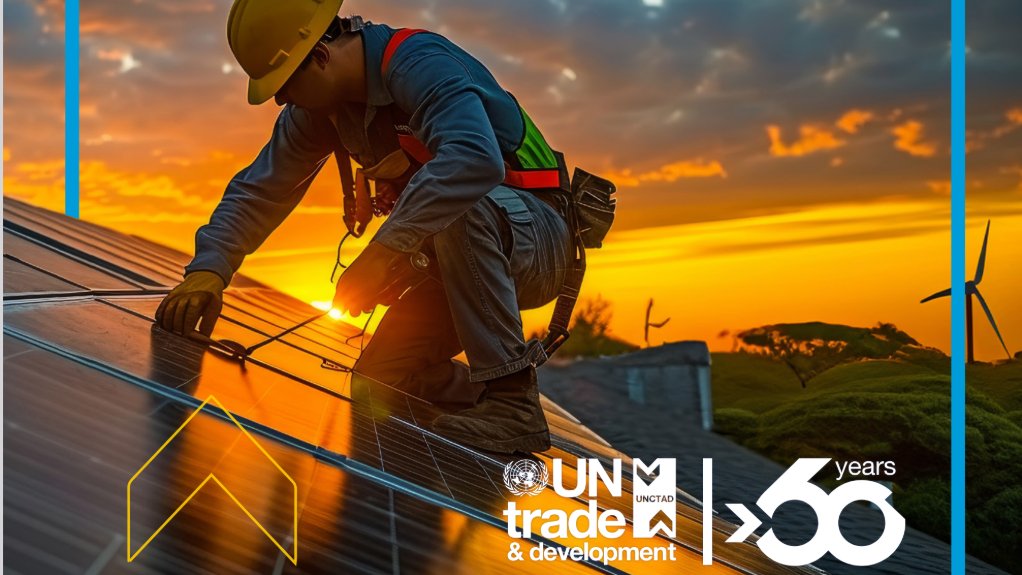- Powering trade: Fine-tuning trade policy for solar and wind energy value chains6.68 MB
Renewable energy has the power to decouple our prosperity from the CO2 emissions that fuel global warming. Moreover, it has the potential to bring power to more than 680-million people living without electricity – and reduce the poverty that implies.
To minimise dependency on fossil fuels, we must expand our capacity to produce renewable energy everywhere. Trade in renewable energy goods must grow faster than it has done over the last decade.
Although solar energy use has increased 37-fold and wind energy 6-fold since 2010, they still accounted for only 5% of global energy consumption in 2022.
We must reassess whether tariffs and other trade measures support or hinder the expansion of solar and wind energy technologies worldwide.
Trade costs along these value chains remain high, making their technologies less affordable and limiting industrialization opportunities. Developing countries’ average tariffs on green energy goods range from 2.5% in Asia and Oceania to 7.1% in Africa, with non-tariff measures adding further costs.
Most developing countries are slipping into traditional trade patterns, exporting raw materials for solar and wind energy technologies while importing intermediate and finished products.
Report by the United Nations Trade and Development
EMAIL THIS ARTICLE SAVE THIS ARTICLE ARTICLE ENQUIRY
To subscribe email subscriptions@creamermedia.co.za or click here
To advertise email advertising@creamermedia.co.za or click here











